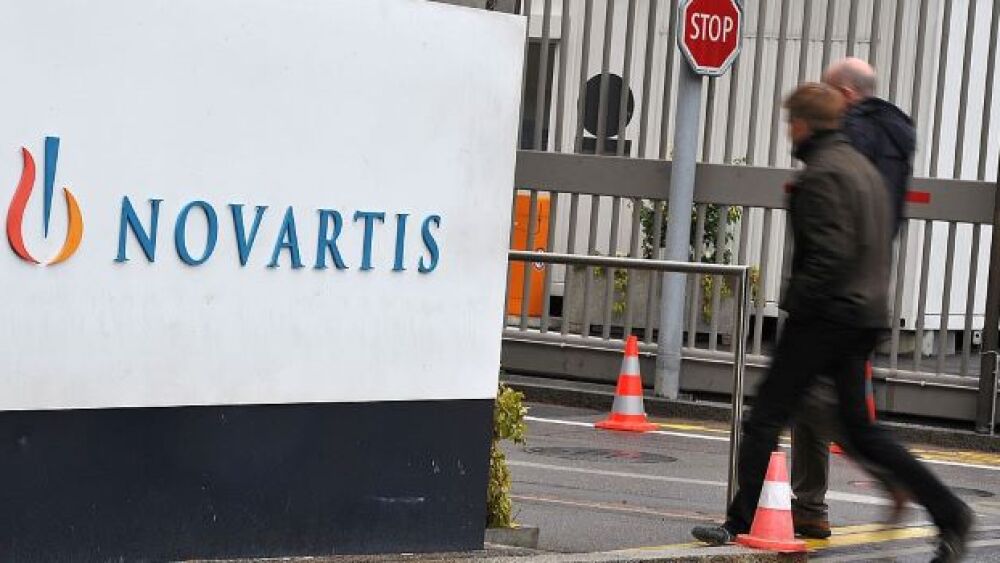Novartis announced that it is discontinuing the trial in kidney transplant patients after conducting an interim analysis from its CIRRUS-1 trial of CFZ533 (iscalimab).
Harold Cunningham/Getty Images
Novartis announced that after conducting an interim analysis from its CIRRUS-1 trial of CFZ533 (iscalimab), it is discontinuing the trial in kidney transplant patients. The drug is dosed with tacrolimus and other immunosuppressive therapies to prevent organ rejection.
The company indicated the drug would continue to be developed to treat hidradenitis suppurativa and Sjögen’s syndrome and other autoimmune diseases. It is currently being evaluated in the Phase II CONTRAIL trial in liver transplant patients and other studies in type 1 diabetes and lupus nephritis.
The study data apparently indicated that iscalimab was not as effective as tacrolimus at preventing organ rejection in kidney transplant patients when both were added to standard immunosuppressive therapies. Those therapies included drugs such as mycophenolate mofetil and corticosteroids.
Earlier studies suggested iscalimab might be more effective than tacrolimus. In those studies, patients had kidney biopsies as healthy as normal kidneys about one year after transplant. Studies show that less than 50% of donated kidneys last 10 years. Any therapy that can extend the life of donated kidneys would have a significant impact on patients and donor organ availability.
Worldwide, there are approximately 3.2 million people with end-stage renal disease.
The CIRRUS-1 trial evaluated 418 transplant patients and studied three different doses of iscalimab. The drug is a fully human antibody that targets the CD40 antigen. It is engineered to inhibit immune reactions to foreign transplanted tissue. The study was expected to run to at least 2023.
Novartis also announced that it is presenting abstracts at the upcoming European Respiratory Society (ERS) International Congress 2021 from September 5 to 8 on its 12 Enerzair Breezhaler and Atectura Breezhaler. The data continues to support the efficacy of Enerzair Breezher, and there will also be an interim analysis of patient engagement and adherence levels of the Enerzair Breezhaler’s optional digital companion.
“Our presence at ERS this year reiterates our commitment to patients through the further development of first-in-class therapies like Enerzair Breezhaler, as well as by exploring the potential of digital health companions and the carbon footprint of our solutions,” said Dominic Brittain, Respiratory Global Program Head, Novartis Pharmaceuticals. “As a global leader in respiratory and allergy, we remain committed to reimagining medicine for patients living with chronic respiratory diseases like asthma.”
And on September 1, Novartis inked a commercial agreement with the National Health Service (NHS) in England as part of a collaboration to develop a population health management approach for high cholesterol levels in patients with atherosclerotic cardiovascular disease (ASCVD). This deal comes after a positive final recommendation from the National Institute for Health and Care Excellence (NICE) for using inclisiran in primary care for adults for its licensed indication. It is licensed in Europe for adults with primary hypercholesterolemia (heterozygous familial and non-familial) or mixed dyslipidemia, in addition to diet modification.
“High cholesterol is a major cause of cardiovascular disease—disease of the heart and blood vessels,” said Jules Payne, chief executive at HEART UK, the cholesterol charity. “It is very common and can affect anyone including those who are young, slim, fit and active. HEART UK looks forward to continuing our leading role in helping people effectively manage their cholesterol and we warmly welcome the collaboration between Novartis and the NHS to enable more people to access this innovative medicine.”





